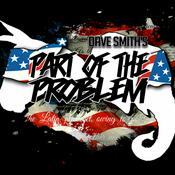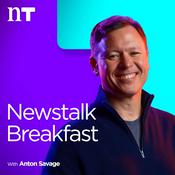153 episodes
- In January, Google settled a lawsuit that pricked up a few ears: It agreed to pay $68 million to a wide array of people who sued the company together, alleging that Google’s voice-activated smart assistant had secretly recorded their conversations, which were then sent to advertisers to target them with promotions.
Google denied any admission of wrongdoing in the settlement agreement, but the fact stands that one of the largest phone makers in the world decided to forego a trial against some potentially explosive surveillance allegations. It’s a decision that the public has already seen in the past, when Apple agreed to pay $95 million last year to settle similar legal claims against its smart assistant, Siri.
Back-to-back, the stories raise a question that just seems to never go away: Are our phones listening to us?
This week, on the Lock and Code podcast with host David Ruiz, we revisit an episode from last year in which we tried to find the answer. In speaking to Electronic Frontier Foundation Staff Technologist Lena Cohen about mobile tracking overall, it becomes clear that, even if our phones aren’t literally listening to our conversations, the devices are stuffed with so many novel forms of surveillance that we need not say something out loud to be predictably targeted with ads for it.
“Companies are collecting so much information about us and in such covert ways that it really feels like they’re listening to us.”Tune in today.
You can also find us on Apple Podcasts, Spotify, and whatever preferred podcast platform you use.
For all our cybersecurity coverage, visit Malwarebytes Labs at malwarebytes.com/blog.
Show notes and credits:
Intro Music: “Spellbound” by Kevin MacLeod (incompetech.com)
Licensed under Creative Commons: By Attribution 4.0 License
http://creativecommons.org/licenses/by/4.0/
Outro Music: “Good God” by Wowa (unminus.com)
Listen up—Malwarebytes doesn't just talk cybersecurity, we provide it.
Protect yourself from online attacks that threaten your identity, your files, your system, and your financial well-being with our exclusive offer for Malwarebytes Premium for Lock and Code listeners. - When you hear the words “data privacy,” what do you first imagine?
Maybe you picture going into your social media apps and setting your profile and posts to private. Maybe you think about who you’ve shared your location with and deciding to revoke some of that access. Maybe you want to remove a few apps entirely from your smartphone, maybe you want to try a new web browser, maybe you even want to skirt the type of street-level surveillance provided by Automated License Plate Readers, which can record your car model, license plate number, and location on your morning drive to work.
Importantly, all of these are “data privacy,” but trying to do all of these things at once can feel impossible.
That’s why, this year, for Data Privacy Day, Malwarebytes Senior Privacy Advocate (and Lock and Code host) David Ruiz is sharing the one thing he’s doing different to improve his privacy. And it’s this: He’s given up Google Search entirely.
When Ruiz requested the data that Google had collected about him last year, he saw that the company had recorded an eye-popping 8,000 searches in just the span of 18 months. And those 8,000 searches didn’t just reveal what he was thinking about on any given day—including his shopping interests, his home improvement projects, and his late-night medical concerns—they also revealed when he clicked on an ad based on the words he searched. This type of data, which connects a person’s searches to the likelihood of engaging with an online ad, is vital to Google’s revenue, and it’s the type of thing that Ruiz is seeking to finally cut off.
So, for 2026, he has switched to a new search engine, Brave Search.
Today, on the Lock and Code podcast, Ruiz explains why he made the switch, what he values about Brave Search, and why he also refused to switch to any of the major AI platforms in replacing Google.
Tune in today.
You can also find us on Apple Podcasts, Spotify, and whatever preferred podcast platform you use.
For all our cybersecurity coverage, visit Malwarebytes Labs at malwarebytes.com/blog.
Show notes and credits:
Intro Music: “Spellbound” by Kevin MacLeod (incompetech.com)
Licensed under Creative Commons: By Attribution 4.0 License
http://creativecommons.org/licenses/by/4.0/
Outro Music: “Good God” by Wowa (unminus.com)
Listen up—Malwarebytes doesn't just talk cybersecurity, we provide it.
Protect yourself from online attacks that threaten your identity, your files, your system, and your financial well-being with our exclusive offer for Malwarebytes Premium for Lock and Code listeners. - There’s a bizarre thing happening online right now where everything is getting worse.
Your Google results have become so bad that you’ve likely typed what you’re looking for, plus the word “Reddit,” so you can find discussion from actual humans. If you didn’t take this route, you might get served AI results from Google Gemini, which once recommended that every person should eat “at least one small rock per day.” Your Amazon results are a slog, filled with products that have surreptitiously paid reviews. Your Facebook feed could be entirely irrelevant because the company decided years ago that you didn’t want to see what your friends posted, you wanted to see what brands posted, because brands pay Facebook, and you don’t, so brands are more important than your friends.
But, according to digital rights activist and award-winning author Cory Doctorow, this wave of online deterioration isn’t an accident—it’s a business strategy, and it can be summed up in a word he coined a couple of years ago: Enshittification.
Enshittification is the process by which an online platform—like Facebook, Google, or Amazon—harms its own services and products for short-term gain while managing to avoid any meaningful consequences, like the loss of customers or the impact of meaningful government regulation. It begins with an online platform treating new users with care, offering services, products, or connectivity that they may not find elsewhere. Then, the platform invites businesses on board that want to sell things to those users. This means businesses become the priority and the everyday user experience is hindered. But then, in the final stage, the platform also makes things worse for its business customers, making things better only for itself.
This is how a company like Amazon went from helping you find nearly anything you wanted to buy online to helping businesses sell you anything you wanted to buy online to making those businesses pay increasingly high fees to even be discovered online. Everyone, from buyers to sellers, is pretty much entrenched in the platform, so Amazon gets to dictate the terms.
Today, on the Lock and Code podcast with host David Ruiz, we speak with Doctorow about enshittification’s fast damage across the internet, how to fight back, and where we can lay blame for where it all started.
”Once these laws were established, the tech companies were able to take advantage of them. And today we have a bunch of companies that aren’t tech companies that are nevertheless using technology to rig the game in ways that the tech companies pioneered.”Tune in today. - There’s an entire surveillance network popping up across the United States that has likely already captured your information, all for the non-suspicion of driving a car.
Automated License Plate Readers, or ALPRs, are AI-powered cameras that scan and store an image of every single vehicle that passes their view. They are mounted onto street lights, installed under bridges, disguised in water barrels, and affixed onto telephone poles, lampposts, parking signs, and even cop cars.
Once installed, these cameras capture a vehicle’s license plate number, along with its make, model, and color, and any identifying features, like a bumper sticker, or damage, or even sport trim options. Because nearly every ALPR camera has an associated location, these devices can reveal where a car was headed, and at what time, and by linking data from multiple ALPRs, it’s easy to determine a car’s daylong route and, by proxy, it’s owner’s daily routine.
This deeply sensitive information has been exposed in recent history.
In 2024, the US Cybersecurity and Information Security Agency discovered seven vulnerabilities in cameras made by Motorola Solutions, and at the start of 2025, the outlet Wired reported that more than 150 ALPR cameras were leaking their live streams.
But there’s another concern with ALPRs besides data security and potential vulnerability exploits, and that’s with what they store and how they’re accessed.
ALPRs are almost uniformly purchased and used by law enforcement. These devices have been used to help solve crime, but their databases can be accessed by police who do not live in your city, or county, or even state, and who do not need a warrant before making a search.
In fact, when police access the databases managed by one major ALPR manufacturer, named Flock, one of the few guardrails those police encounter is needing to type a single word in a basic text box. When Electronic Frontier Foundation analyzed 12 million searches made by police in Flock’s systems, they learned that police sometimes filled that text box with the word “protest,” meaning that police were potentially investigating activity that is protected by the First Amendment.
Today, on the Lock and Code podcast with host David Ruiz, we speak with Will Freeman, founder of the ALRP-tracking project DeFlock Me, about this growing tide of neighborhood surveillance and the flimsy protections afforded to everyday people.
“License plate readers are a hundred percent used to circumvent the Fourth Amendment because [police] don’t have to see a judge. They don’t have to find probable cause. According to the policies of most police departments, they don’t even have to have reasonable suspicion.”Tune in today.
You can also find us on Apple Podcasts, Spotify, and whatever preferred podcast platform you use.
For all our cybersecurity coverage, visit Malwarebytes Labs at malwarebytes.com/blog.
Show notes and credits:
Intro Music: “Spellbound” by Kevin MacLeod... - This is the story of the world’s worst scam and how it is being used to fuel entire underground economies that have the power to rival nation-states across the globe. This is the story of “pig butchering.”
“Pig butchering” is a violent term that is used to describe a growing type of online investment scam that has ruined the lives of countless victims all across the world. No age group is spared, nearly no country is untouched, and, if the numbers are true, with more than $6.5 billion stolen in 2024 alone, no scam might be more serious today, than this.
Despite this severity, like many types of online fraud today, most pig-butchering scams start with a simple “hello.”
Sent through text or as a direct message on social media platforms like X, Facebook, Instagram, or elsewhere, these initial communications are often framed as simple mistakes—a kind stranger was given your number by accident, and if you reply, you’re given a kind apology and a simple lure: “You seem like such a kind person… where are you from?”
Here, the scam has already begun. Pig butchers, like romance scammers, build emotional connections with their victims. For months, their messages focus on everyday life, from family to children to marriage to work.
But, with time, once the scammer believes they’ve gained the trust of their victim, they launch their attack: An investment “opportunity.”
Pig butchers tell their victims that they’ve personally struck it rich by investing in cryptocurrency, and they want to share the wealth. Here, the scammers will lead their victims through opening an entirely bogus investment account, which is made to look real through sham websites that are littered with convincing tickers, snazzy analytics, and eye-popping financial returns.
When the victims “invest” in these accounts, they’re actually giving money directly to their scammers. But when the victims log into their online “accounts,” they see their money growing and growing, which convinces many of them to invest even more, perhaps even until their life savings are drained.
This charade goes on as long as possible until the victims learn the truth and the scammers disappear. The continued theft from these victims is where “pig-butchering” gets its name—with scammers fattening up their victims before slaughter.
Today, on the Lock and Code podcast with host David Ruiz, we speak with Erin West, founder of Operation Shamrock and former Deputy District Attorney of Santa Clara County, about pig butchering scams, the failures of major platforms like Meta to stop them, and why this global crisis represents far more than just a few lost dollars.
“It’s really the most compelling, horrific, humanitarian global crisis that is happening in the world today.”Tune in today.
You can also find us on Apple Podcasts, Spotify, and whatever preferred podcast platform you use.
For all our cybersecurity coverage, visit Malwarebytes Labs at malwarebytes.com/blog.
Show notes and credits:
Intro Music: “Spellbound” by Kevin MacLeod (incompetech.com)
Licensed under Creative Commons: By Attribution 4.0 License
http://creativecommons.org/licenses/by/4.0/
Outro Music: “Good God” by Wowa...
More News podcasts
Trending News podcasts
About Lock and Code
Lock and Code tells the human stories within cybersecurity, privacy, and technology. Rogue robot vacuums, hacked farm tractors, and catastrophic software vulnerabilities—it’s all here.
Podcast websiteListen to Lock and Code, The News Agents - USA and many other podcasts from around the world with the radio.net app

Get the free radio.net app
- Stations and podcasts to bookmark
- Stream via Wi-Fi or Bluetooth
- Supports Carplay & Android Auto
- Many other app features
Get the free radio.net app
- Stations and podcasts to bookmark
- Stream via Wi-Fi or Bluetooth
- Supports Carplay & Android Auto
- Many other app features


Lock and Code
Scan code,
download the app,
start listening.
download the app,
start listening.
































